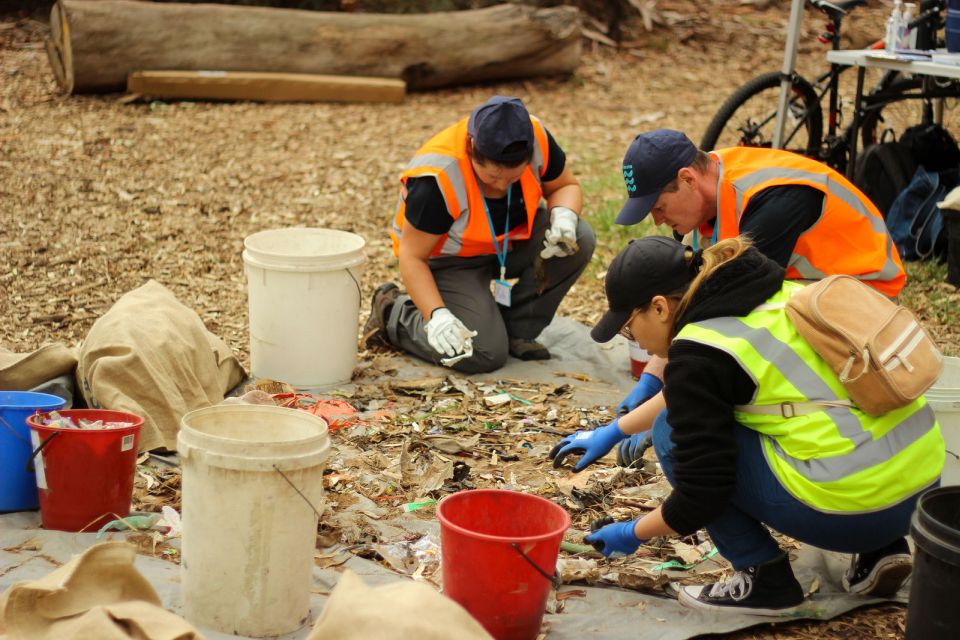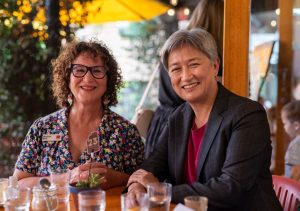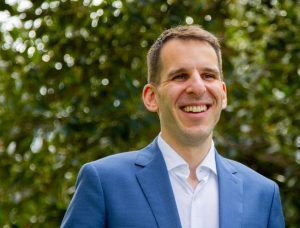
A flood of volunteers is needed to help blitz the nation’s world-famous riverbanks, bays, and beaches of waste – and repair the wildlife habitats relying on them – to guarantee a speedy environmental and economic recovery, according to leading national nature body Conservation Volunteers Australia (CVA)
Launching CVA’s annual #SeaToSource marine plastic volunteering drive, CEO Phil Harrison said special focus would be placed on flood recovery in impacted catchments from southeast Queensland down to Sydney to reduce waste flowing out into the Great Southern Reef.
Mr Harrison also announced CVA’s joint-Federal Government natural disaster volunteer portal would be stood up to assist local communities and environment groups with broader nature and wildlife habitat recovery and resilience across flood-impacted regions over the coming months.
However, Mr Harrison said marine plastic was a major problem for wildlife, human and tourism health Australia-wide, flooding or not, and encouraged all Australians to visit the CVA website to sign up, or go straight to conservationvolunteers.com.au/preparing-for-flood-recovery/
He said it was also important to ensure Australia was “dressed for success” to support its global reopening.
“Over 12,000 Australians signed up to help nature recover post the 2019-20 Black Summer Bushfires and we would love to see a similar flood of support,” Mr Harrison said.
“There’s no doubt the floods have had a devastating impact on both our waterways and the wildlife depending on them and couldn’t have come at a worse time for tourism operators already reeling from the pandemic.
Australia ranks number one in the world for its coastal, nature and wildlife tourism and, with global borders reopening after two years, it is doubly critical for environmental and economic recovery we all lend a hand where we can.
“Nor do we want Australia’s wildlife, citizens or tourists trudging through trash to access our world-famous marine treasures.
“Once people are back on their feet, we’re hoping that we can continue the ‘mud army’ spirit to also help the swift recovery of our wildlife’s homes and habitats over the coming weeks, months and years as well.
“Whether you can lend a couple of hours or a couple of days, there will be nature volunteering experiences to suit everyday Australians, every day.”
CVA’s volunteer portal takes registrations from the public and matches them with CVA projects, councils and other local environment and wildlife groups requiring assistance with nature recovery and resilience efforts.
Federal Assistant Minister for Waste Reduction and Environmental Management Trevor Evans also encouraged Australians to sign up, saying small plastics and litter being washed out to sea were particularly threatening marine habitats, and the wildlife and humans relying on them for food.
Assistant Minister Evans said marine waste collected would be collated locally and mapped nationally through CVA’s current partnership with the Commonwealth Scientific and Industrial Research Organisation (CSIRO).
“Prior to the floods, the CSIRO found marine litter was around 75% plastic, with 99% of sea birds ingesting plastic by 2050, while others predict ocean plastic outweighing fish by 2050,” Mr Evans said.
“That’s why the Morrison Government committed $5 million in partnership with Conservation Volunteers Australia to tackle marine plastic head on.
“Our partnership with CVA has seen nearly 200,000 pieces removed already the past two years. To put that in context, the CSIRO found it takes as few as 14 pieces of plastic to kill a sea turtle.
“Now think how many wheelie bins and other household plastic and waste washed out into our waterways from the floods and it’s important we act now to minimise the damage. The same goes for the wildlife displaced and habitats damaged by the floods.”
Conservation Volunteers Australia’s #SeaToSource program has removed nearly 200,000 pieces of plastic from riverbanks, bays, and beaches since 2020 thanks to about 3000 volunteers turning out, while CVA’s national nature recovery and resilience portal saw 12,000+ Australians sign up following the 2019-20 Black Summer Bushfires. Both are partnerships with the Federal Government for $5m and $2.5m respectively.
More info: Tackle plastic pollution at the source – Conservation Volunteers Australia





